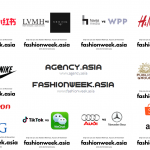When the environment makes customers feel insecure, empathetic marketing is the only way to realise success. But if you don’t know your customers intimately, empathy is impossible.
Operating as JobStreet and JobsDB in Malaysia, Singapore, Philippines, Indonesia, Thailand and Hong Kong, SEEK Asia underwent a monumental shift in marketing strategy following the impact of COVID-19.
The company’s cultural value of “We Care” took on an entirely new purpose and meaning as levels of fear and uncertainty in the market skyrocketed.
Job losses on a previously unimaginable scale were looming. At the same time, specific sectors were set to boom, and not all companies had the experience or know-how to fill multiple roles within a tight deadline.
This situation was reflected in the sixth edition of the Salesforce State of Marketing report. As customers navigate a series of ‘new normals’, the report revealed that personalised and empathetic engagement is the single greatest priority for marketers.
To succeed, a deep and well-informed understanding of what drives behaviour at each step of the customer journey is required. State of Marketing also reported a 186% increase in Artificial Intelligence (AI) adoption by marketers since 2018, enabling them to gather and identify the data they require to connect with empathy.
Right now, 78% of marketers tell us their customer engagement is data-driven. That data is coming from an increasing number of sources, including transactional, known digital identities and offline identities.
The SEEK Asia program reflects this data-driven approach.
“When the pandemic lockdown hit … we went back to the drawing board. Whatever we had planned for the last six months didn’t make sense any more,” says Ramesh Rajandran, Chief Marketing Officer at SEEK Asia.
“Only by unifying all data sets could we attain a 360-degree view of our customers and fully understand their journey. Working towards that data unification has been an integral part of our game plan since we started using Salesforce Marketing Cloud just before the pandemic.”
Ramesh and his marketing team pooled data from brands and teams within the business, including customer service, product development, data insights and sales. This matched the State of Marketing finding that 79% of marketers lead customer experience initiatives across their organisations.
“Soon enough, it was clear to everyone that the ultimate goal of marketing automation is to drive common business objectives, rather than marketing goals,” Rajandran says.
Of the numerous positive outcomes from the program, two stood out. One was the onboarding process for customers, ensuring greater take-up of content in our communication.
The other was a clear expression of empathy in the form of the #WorkNow program, which benefits jobseekers and employers by bringing them together quickly and efficiently, with a shared purpose.
“If you have lost a job due to the pandemic, we want your profile to be visible to employers who need immediate help,” Ramesh says. “So far, the program has had an overwhelming response, with over 100,000 people tagging their profiles with #WorkNow.”
“We want to have a sense of purpose about helping the community around us. I’m proud to say more than half of the people surveyed have found new jobs.”
For more marketing insights download the sixth edition of the State of Marketing report.
MARKETING Magazine is not responsible for the content of external sites.
An afternoon of conversations we never had, with leaders most of you never met.
Discover what’s possible from those who made it possible. Plus a preview of The HAM Agency Rankings REPORT 2024.
Limited seats: [email protected]
BOOK SEATS NOW









